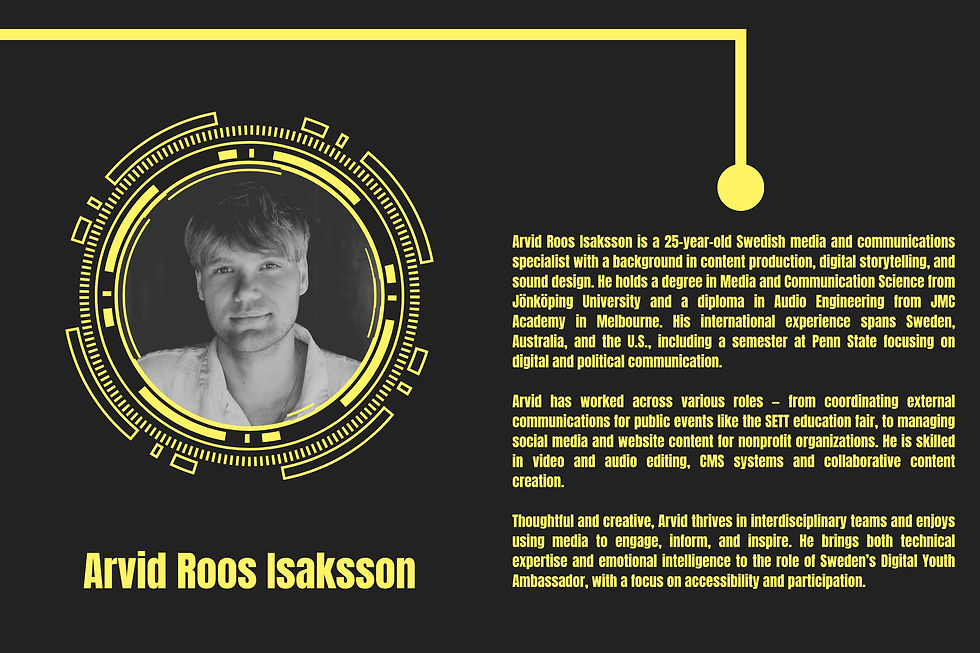Report: The prevalence of men who use internet forums characterised by misogyny
- nordref4
- Nov 2, 2020
- 3 min read
Updated: Dec 16, 2020

A new survey of the affiliation of Nordic men with misogynistic internet communities shows that around 850 Nordic young men are active in such forums. The report highlights that the derogatory language about and views on women in these communities are spreading to mainstream social platforms.
Based on more than 100,000 misogynistic posts and comments on internet communities such as 4chan, 8chan, and Reddit, the Nordic report The angry internet has analysed misogynistic communities in the Nordic Region. The report, by the Centre for Digital Youth Care, shows that internet forums exist that bring young Nordic men together in fraternities that incite hatred towards women and gender equality. The report finds no indications that any of the Nordic users will act physically on the basis of their attitudes as has been the case in other countries. Important knowledge about misogyny online “The report provides new and important knowledge about how misogyny exists in various forms online. It shows how some young men put themselves in opposition to society and congregate around values and norms that are directly at odds with gender equality and women’s rights, which are both absolutely central to our society,” says Peter Hummelgaard, Denmark’s Minister for Employment. INCEL and Men’s Rights Activists The report describes different groups. There is, for example, the group INCEL – involuntary celibates – whose members share a common understanding that women have deprived them of their right as men to sex. Then there is MRA (Men’s Rights Activists), who believe that women’s rights and feminism are a direct threat to society that must be fought. Lonely men Several of the Nordic users are quoted in the report to highlight their views that, for example, the children of single women will turn into criminals: “Letting a single woman raise a child ONLY makes it worse for the child. Women are crap leaders,” says one user, who goes on to say: “A society where men are not allowed to control their inferior counterpart – a woman – is an awful world.” The report points out that young men initially seek out such communities because they are vulnerable and lonely. In becoming part of the fraternity, they adopt misogynistic attitudes and values because the sense of unity outweighs these views. Difficult to be vulnerable “During the course of the project, we met several young men who, in trying to put their violent anger into words, ended up talking about their vulnerability. Men who have created their own countercultures because they felt so far outside the arenas that they could see everyone else fitting into. Together, they find themselves to be ‘against’ the community they perceive themselves as being excluded from,” says Christian Mogensen of the Centre for Digital Youth Care and co-author of The angry internet. “For men, it’s often difficult to be vulnerable. It’s seen as a weakness, and so many of them translate this vulnerability into an extreme hostility, which can threaten gender equality, democracy, and especially their own well-being.” A democratic problem The report highlights how the hateful and condescending can spread into day-to-day language on social media. “If women in particular are exposed to hatred and therefore withdraw from public discussions, for example, or if misogynistic norms in society are allowed to flourish, then we have a democratic problem. Based on new knowledge from the report, next year we will arrange an international conference for professionals so that we can explore how best to address this challenge so that everyone, regardless of their gender, can participate freely in the public debate,” says Hummelgaard. International launch The report The angry internet and its findings will be presented at an international digital launch with presentations by the report’s authors and Nordic experts the European Commissioner for Gender Equality, the Council of Europe’s Commissioner for Human Rights, the Deputy Executive Director of UN Women, and the CEO and founder of Promondo and the global campaign MenCare. The study has been conducted by the Centre for Digital Youth Care for the Nordic Council of Ministers as part of the Danish presidency in 2020.





Comments